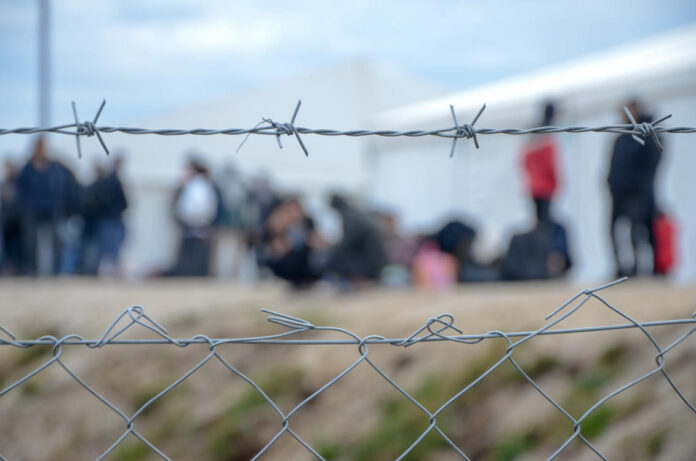LONDON: Efforts to bring to justice members of the regime of Syrian President Bashar Assad accused of torturing and murdering civilians are “starting to bear fruit,” said Human Rights Watch as a criminal trial in the German city of Frankfurt began on Wednesday.
“Over the past decade, a large amount of evidence about atrocities in Syria has been collected, and now, as this case in Frankfurt shows, those efforts are starting to bear fruit,” said Balkees Jarrah, interim international justice director at HRW.
“Syrian survivors, lawyers and activists have been central to these efforts — not only pressing for justice but doing the groundwork that makes justice possible.”
The Frankfurt case centers on alleged atrocities committed by Alaa M., a Syrian state agent said to have worked as a physician in two military hospitals in the cities of Damascus and Homs.
He stands accused of torturing civilians in both facilities, as well as in a state-run detention building overseen by regime intelligence officers.
Alaa M. fled the war-torn country in 2015, arriving in Germany to work as a doctor. But he was arrested by German police in 2020.
Much of the evidence set to be shown in the trial arrived from the “Caesar” photographs, a set of more than 50,000 images smuggled out of Syria by a high-level defector of the Assad regime.
The photographs were intended for bureaucratic record-keeping, and show civilians detained and tortured by the regime.
Earlier this month, another German court convicted Anwar R., a former Syrian intelligence official, of crimes against humanity. He was sentenced to life in prison.
HRW labeled that conviction a “meaningful moment for civilians who survived torture and sexual abuse in Syria’s prisons.”
It added: “The court in Frankfurt should make every effort to make information about the trial available to the public and communities affected by the many crimes committed in Syria.
“Inadequate outreach to affected communities can have a direct impact on the success of accountability efforts in relation to serious international crimes.”
One problem in the German trials is the lack of translation of the proceedings into Arabic, HRW said. “Non-accredited Arabic language journalists and people from affected communities who spoke Arabic were not given access to translation devices in the courtroom,” it added.
“It was not easy for Arabic speakers to follow the court sessions, especially due to the technical language used and the speed of the conversations in the courtroom.”
Jarrah said: “To be meaningful, justice should not only be done, but be seen to be done. Court authorities should make Arabic translation more widely available for these cases involving the world’s worst crimes committed abroad.”
HRW said: “Lack of awareness and understanding of the proceedings and judicial systems prevents Syrians and others from fully understanding justice efforts taking place outside Syria and from being able to contribute to them.
“Research has shown that meaningful outreach efforts have a positive impact on affected communities.”

